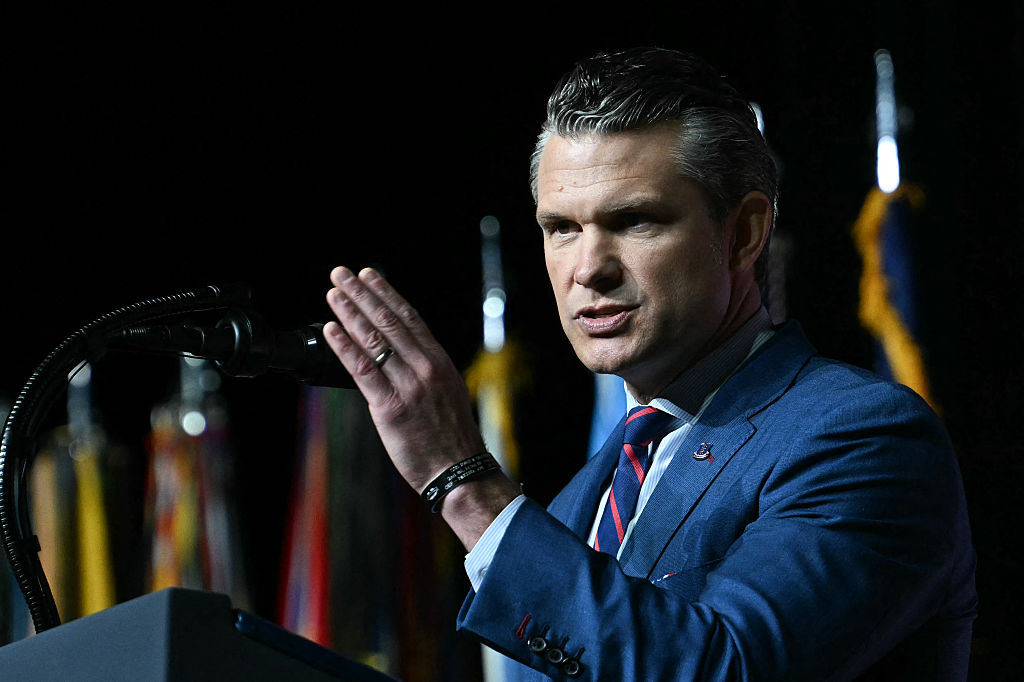New rules that would limit press access to the Pentagon are raising alarm among news organizations, who warn that the new policy amounts to “intimidation” and threatens journalists’ ability to keep the public informed about the military.
Reporters have just under a week to sign the Pentagon’s updated press policy or face potential restrictions to their access. Those who opt to sign agree to recognize the rules “even if I do not necessarily agree with such policies and procedures,” according to the policy.
[time-brightcove not-tgx=”true”]
The agency relaxed the new guidelines following negotiations with journalists after an earlier draft outlined last month was met with backlash. That draft, which stated that information “must be approved for public release by an appropriate authorizing official before it is released, even if it is unclassified,” was widely interpreted to mean that reporters would be required to seek approval from the Pentagon before publishing information that hadn’t officially been released, or risk losing their credentials to report within the building.
The updated policy will not mandate that approval. But the Pentagon Press Association (PPA), which represents journalists covering the department, said on Wednesday that the revised rules reporters are being asked to sign still “appear designed to stifle a free press and potentially expose us to prosecution for simply doing our jobs.”
“This press access has never precipitated the kind of national security crisis feared by the current leadership of the department,” the group said in a statement. “The American people deserve to know how their military is being run. They deserve more information from this administration, not less.”
Secretary of Defense Pete Hegseth has previously accused journalists of “hunting for scandals all the time” and being a part of the “fake news.” When the initial draft of the new restrictions was released last month, Hegseth wrote on X, “The ‘press’ does not run the Pentagon — the people do.”
The policy marks the latest move by the Trump Administration to limit the press’s access to the federal government. In January, the Pentagon removed several outlets from their work spaces at the department and replaced them with more conservative-leaning publications, such as The Daily Caller and The Washington Examiner.
The following month, the White House excluded the Associated Press from events for not following the President’s Executive Order renaming the Gulf of Mexico as the Gulf of America.
Trump himself has also made pointed attacks against a number of media organizations and outlets. The President sued multiple entities connected with the Wall Street Journal after it reported in July that he had sent a “bawdy” birthday letter to Jeffrey Epstein in 2003, for instance, and then the New York Times in September over allegations that the paper sought to damage his reputation. The latter lawsuit was dismissed days later.
The PPA acknowledged on Wednesday that under the Pentagon’s updated guidelines, it is “no longer requiring reporters to express agreement with the new policy as a condition for obtaining press credentials.”
The group expressed concern, however, that the revised version “leaves open the threat” that reporters’ credentials could be revoked if they release information that hasn’t been formally approved for release, even if it’s unclassified.
“The policy conveys an unprecedented message of intimidation to everyone within the DoD, warning against any unapproved interactions with the press and even suggesting it’s criminal to speak without express permission—which plainly, it is not.”
The PPA also noted that the updated policy suggests the department will “move all of our news organizations from our dedicated workspaces,” which it said would “further isolate reporters, making it harder to interact even with the spokespeople inside the Pentagon who are entrusted to approve information for public release.”
Gabe Rottman, vice president of policy at the Reporters Committee for Freedom of the Press, similarly warned that the updated policy would pose an obstacle to media efforts to cover the Pentagon.
“The fact is we still have concerns with the updated language of the policy and expect that it will pose a significant impediment as journalists weigh with their employers whether or not to sign this revised version,” Rottman said in a statement to multiple outlets.

